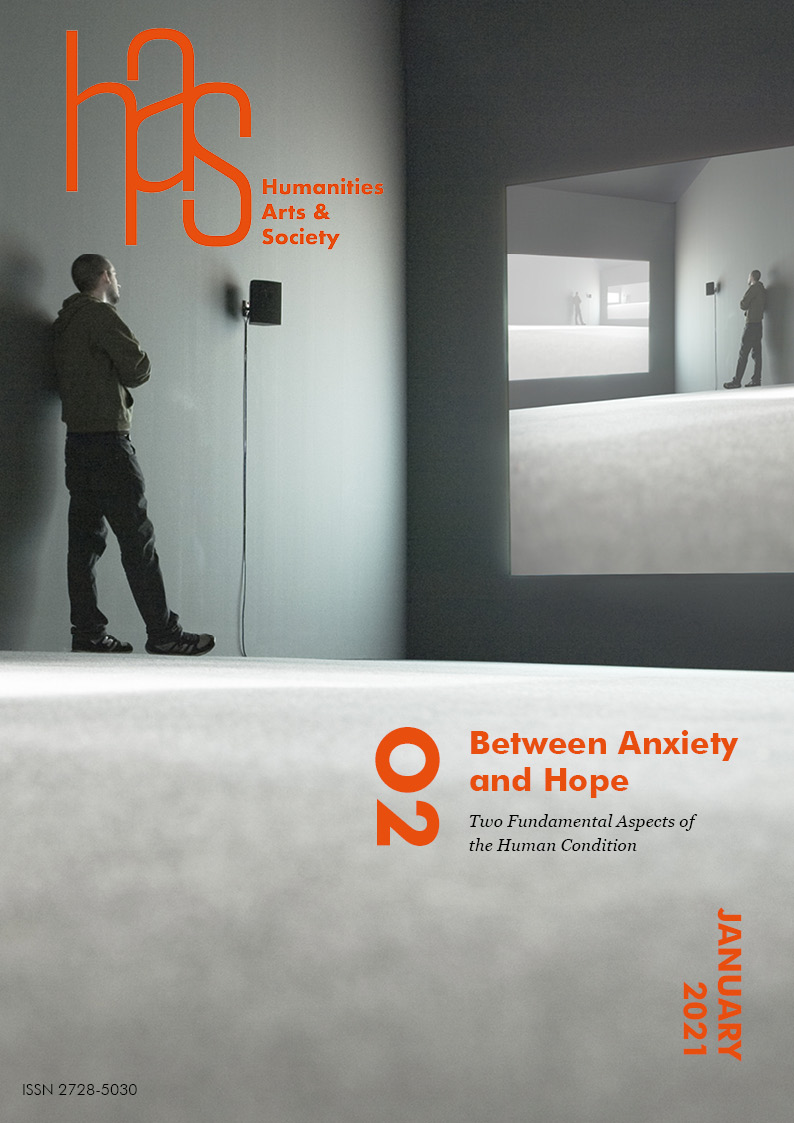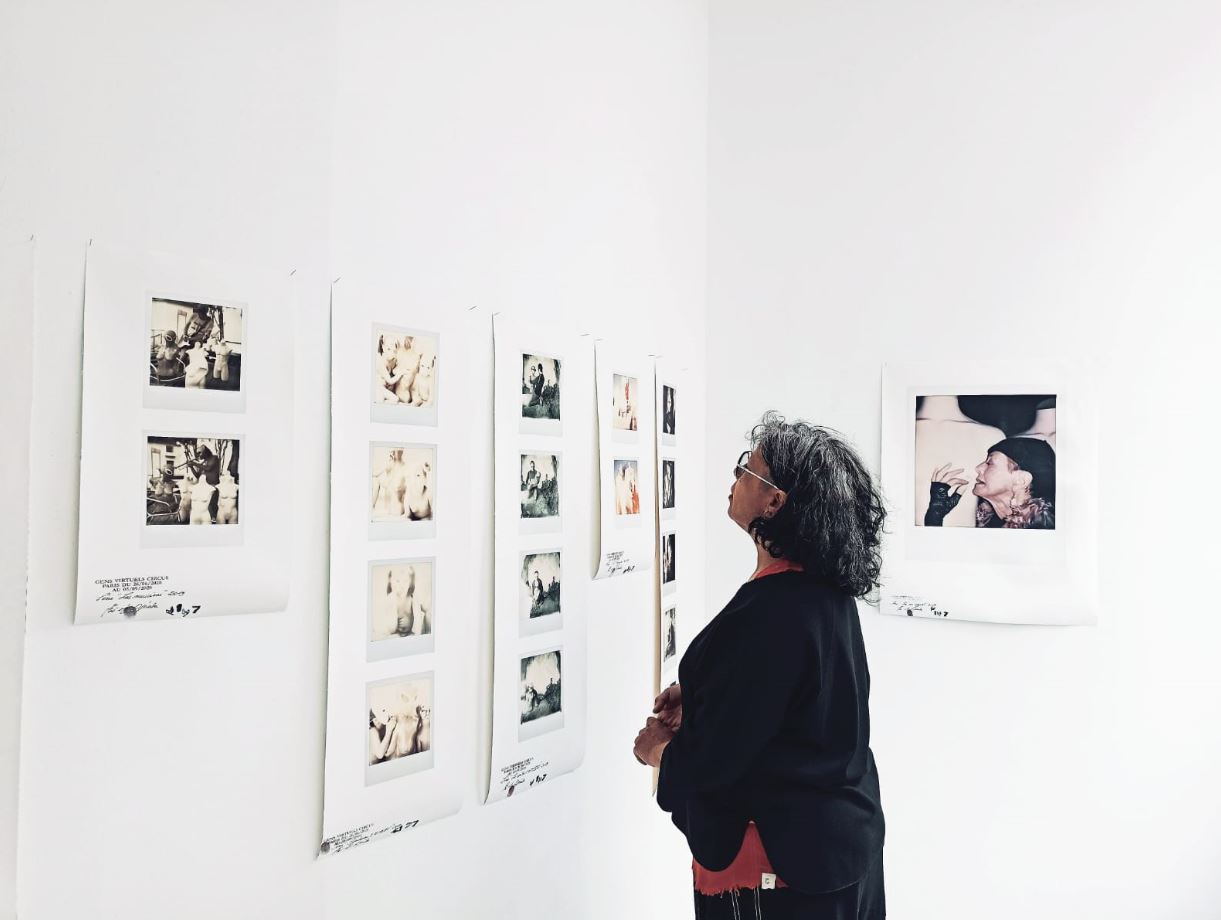
Mémoire de l’Avenir, a space dedicated to contemporary art, is located in Belleville, at the heart of a multi-cultural neighbourhood in Paris. The space has been designed for meetings between artists and thinkers of different social and cultural backgrounds, as well as an audience interested in the arts and their impact on contemporary society. We offer contemporary art events in our space, as well as satellite events at other cultural institutions.
Our programme includes multidisciplinary workshops and interactive cultural activities. These activities, based upon the respectful inclusion of all cultures and identities, propose an intuitive approach to creativity. Sensibility is seen as fundamental to learning.
In our interactive cultural programme, which is designed for audiences facing constraints to cultural access, art works are used as tools and as opportunities for dialogue, debate, and the critical questioning of contemporary issues. The aim is not just to make participants autonomous in the museum space, but to bring out the knowledge and understanding of each participant. Individual perspectives are shared with the group.
Exhibitions
The second part of the eight-artist exhibition A Kind of Magic: In Search of Different Dimensions, presented in January 2020, explored the physical and mental territories connected to the human need to understand one’s environment.
Songe, ô futur cadavre, éphémère merveille, avec quel excès je t’aimais is an exhibition by the artist duo Liberté. Femmes magiques (photographer and visual artist Riccarda Montenero and visual artist Faé A. Djéraba). The exhibition questioned our relationship to different forms of violence. Removed from the context of intimate spheres and terminologies in order to question cultural and social systems, their work interrogated cultural and social systems and investigated the effects of violence, pain, and its catharsis.
In the exhibition Virtual Circus People: Interconnected Histories, Faé A. Djéraba questioned the notions of freedom and personal identity with respect to the new relationships produced by social media. Her series of nineteen Polaroids, presented in diptychs, triptychs, and poliptychs, spanned our human and virtual conditions through themes such as encounter, friendship, self-image, seduction, emotion, and childhood.
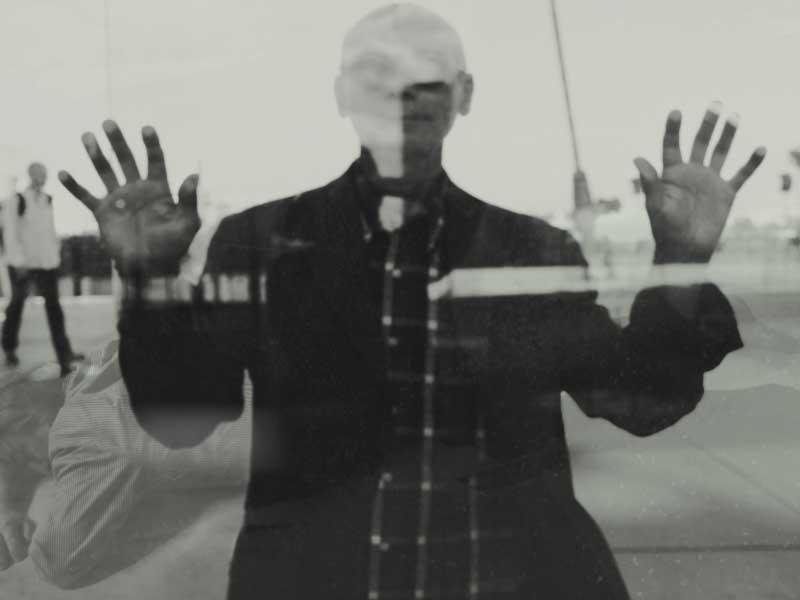
The photography project Rue de l’Espérance by Riccarda Montenero, presented in September 2020, tackled, in a quasi-pictoral way the passions of the soul and the body, also touching upon discrimination and violence. Because the artist likes to surround herself with other artistic expressions and universes, she invited director Teresa Scotto di Vettimo for a screening of her short film Un véritable chemin de croix, featuring the actor Olindo Cavadini. The singer and composer Magali Nardi also presented a performance in dialogue with the themes of the exhibition.
The exhibition Beyond the Frame: Image in Action, organized in partnership with L’AiR Arts, presented the work of ten photographers. The works proposed narrative and experimental processes that bear witness to environmental and social transformations, as well as to contemporary struggles. They also shed light upon the links that bring people and nature closer together. A debate with the photographers and two essays by Aurore Nerrinck and Margalit Berriet on Ethics and Aesthetics were presented as part of UNESCO’s World Philosophy Day in November 2020.
In Under Wraps, artist Suki Valentine explored hidden personal and collective narratives, and questioned their impact upon the construction of individual and group identity. The exhibition was made up of two series of works by the artist, one about the silence of history and the other about the silence of individuals or families.
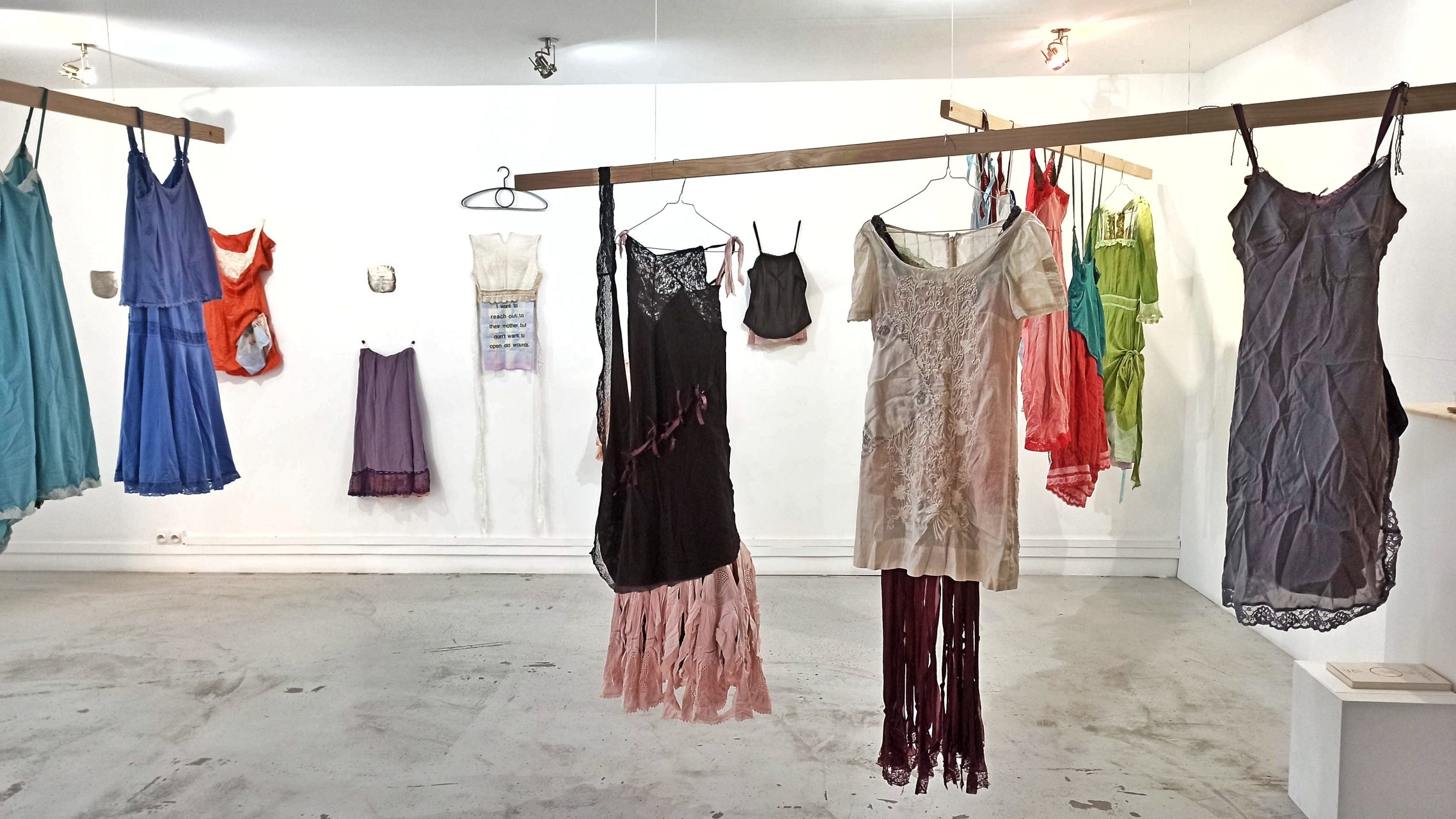
Open Windows
During the French government’s lockdown to limit the spread of COVID-19 between March and May 2020, and between November 2020 and January 2021, Mémoire de l’Avenir had to close its doors to the public. In this unprecedented situation, the arts and the humanities gained a renewed importance as connectors and essential resources for the development iof critical thinking, the raising of awareness, and the need to understand our world from different perspectives. As societies around the world were adapting to social distancing and lockdown measures—closing their doors‚—the arts and humanities were opening new windows. Mémoire de l’Avenir launched Open Windows, which presented artworks in response to the crisis. The projects are available on the Mémoire de l’Avenir website.
ResiliArt
As part of UNESCO’s programme ResiliArt, Mémoire de l’Avenir, together with artists and humanities scholars, presented a debate on the fundamental importance of the roles of the artist and of creativity, and the necessity of interdisciplinary collaboration in order to better understand the challenges we face. The participants were Luiz Oosterbeek, President of CIPSH and Director of HAS Magazine, Margalit Berriet, President and founder of Mémoire de l’Avenir and Director of HAS Magazine, Marie-Cécile Berdaguer, exhibitions and communication manager at Mémoire de l’Avenir, with Marc-Williams Debono, neuroscientist and director of the transdisciplinary journal PLASTIR: ARTS, Alexandra Roudière, artist and researcher, and Luca Giacomoni, stage director and founder of Why—the first laboratory dedicated entirely to the art of storytelling in France—with moderator Florence Valabregue, media consultant.
Educational Workshops
The workshop Imagine, led by Myriam Tirler and Alexandra Roudière, is pne of the activities planned as part of the training programme for childcare assistants. The goal is to accompany participants in the enhancement of their self-image through bodily experimentation, and to have a positive collective experience. The workshop mixes performance with photography, and proposes the creation of a triptych of images, allowing the participants to talk about their history through objects, and to question the representations of their experience. The making of amulets and lucky charms in natural materials symbolizes both the gesture of care and the benevolent approach, and indirectly questions the basics of the profession.
In the workshop Echo In Time, artist Alexandra Roudière chose to explore 19th century France. Through an analysis of the aesthetic upheavals of that time, the artist sought to create links to contemporary issues. The group included women who had recently moved to France, most of them from Northwest Africa and Egypt. Several of the participants are from politicized families, or have lived through the Arab Spring, and were keen to discuss politics and the public sphere and to learn French through questions that interested them. The workshop explored French counterculture, starting from the Declaration of the Rights of Man, in order to question the notion of dignity and to discuss new social utopias.
The Enchanted Book is an extracurricular workshop led by Léa Donadini and Gabrielle Birnholz for primary school students. The workshop allows them to create, individually and collectively, a book on the theme of hybridization. The children discover the multiplicity of book formats and, through this, the different ways of telling a story. The books were assembled side by side to create one large, common story that makes up an enchanted book.
The workshop Comics in Class was held at the jail of Villepinte with two groups. There were large disparities in French language skills; several particpiants were multi-lingual and others spoke a language other than French. In this context, artists Isabelle Gozard and Nicolai Pinheiro used several language exercises to encourage dialogue. During the last session, the participants began to construct a script and the first narrative sequences of their comic book.
The participants in the workshop Rêve Végétal made their dreams coincide with childhood memories. The exchanges brought out smells, images, and habits that were distant in time, and often linked to other countries. Led by the artist Lydia Palais, the participants created an installation with large-format canvases on which nature and its symbolism entered into engagement with the vegetation of the neighbourhood. The works were conceived and produced in direct contact with nature, and installed in the shared gardens of Archipelia.
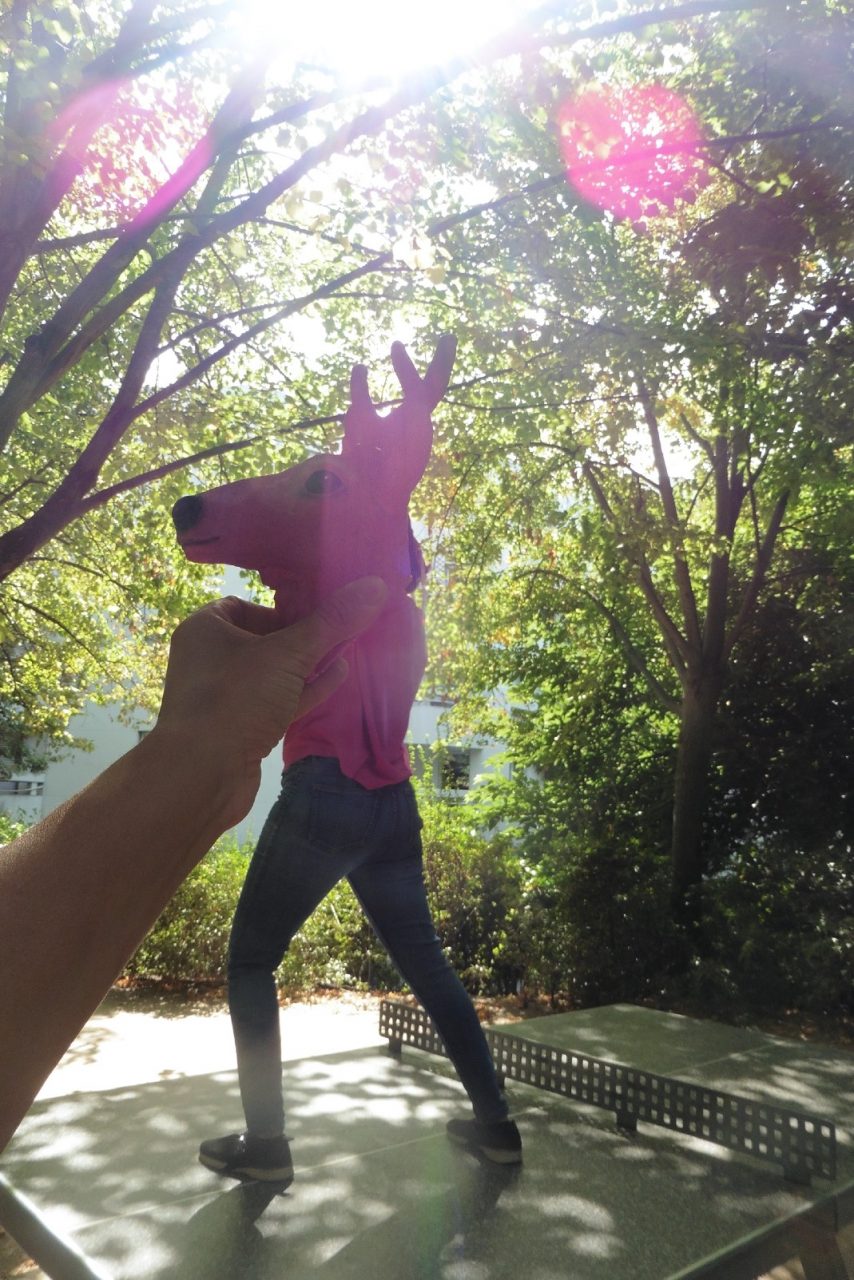
Interactive Cultural Mediation
A visit to the exhibition Bio-inspirée at the Cité des Sciences et de l’Industrie explored the subject of ecological citizenship and the relationship between people and the environment, in order to better understand contemporary problems and challenges, as well as their origins. Biomimetics was also discussed, inspired by solutions already present in nature. As an interactive visit, the dialogue was rooted in the experiences, knowledge, and ideas of the young participants, in order to collectively imagine solutions for co-existence in respect of the environment.
During the visit at the Jardin Suspendu , a hanging garden in the 20th arrondissement of Paris, the young participants were introduced to organic gardening and permaculture. The goal of the visit was to better understand the intelligence of nature and to respect its functioning, in order to establish a respectful and beneficial relationship for all. Permaculture is about creating an ecosystem that respects all living things, combining the well-being of human and non-human beings, the preservation of nature, and the equitable sharing of resources. This educational experience was an invitation to reconnect with nature, even within the urban setting.
The exhibition Courant Verts at the Espace EDF presented works by artists who explore the relationships between people and nature, and especially about the current geological age—the Anthropocene—the period during which humanity has had a dominant effect oin the environment. The goal of the dialogue was to enable the creation of new narratives, in particular by taking concrete action. This is the case for Thierry Boutonnier, an artist and former agricultural worker, whom we were lucky enough to meet that day, and who invited the young visitors to collaborate in his work, Recherche forêt, composed of young plant shoots taken from disused urban areas and that will later be transplanted back into the urban forests of Paris. The project shows how art and artists can participate in, and accompany the important mutations of our time.
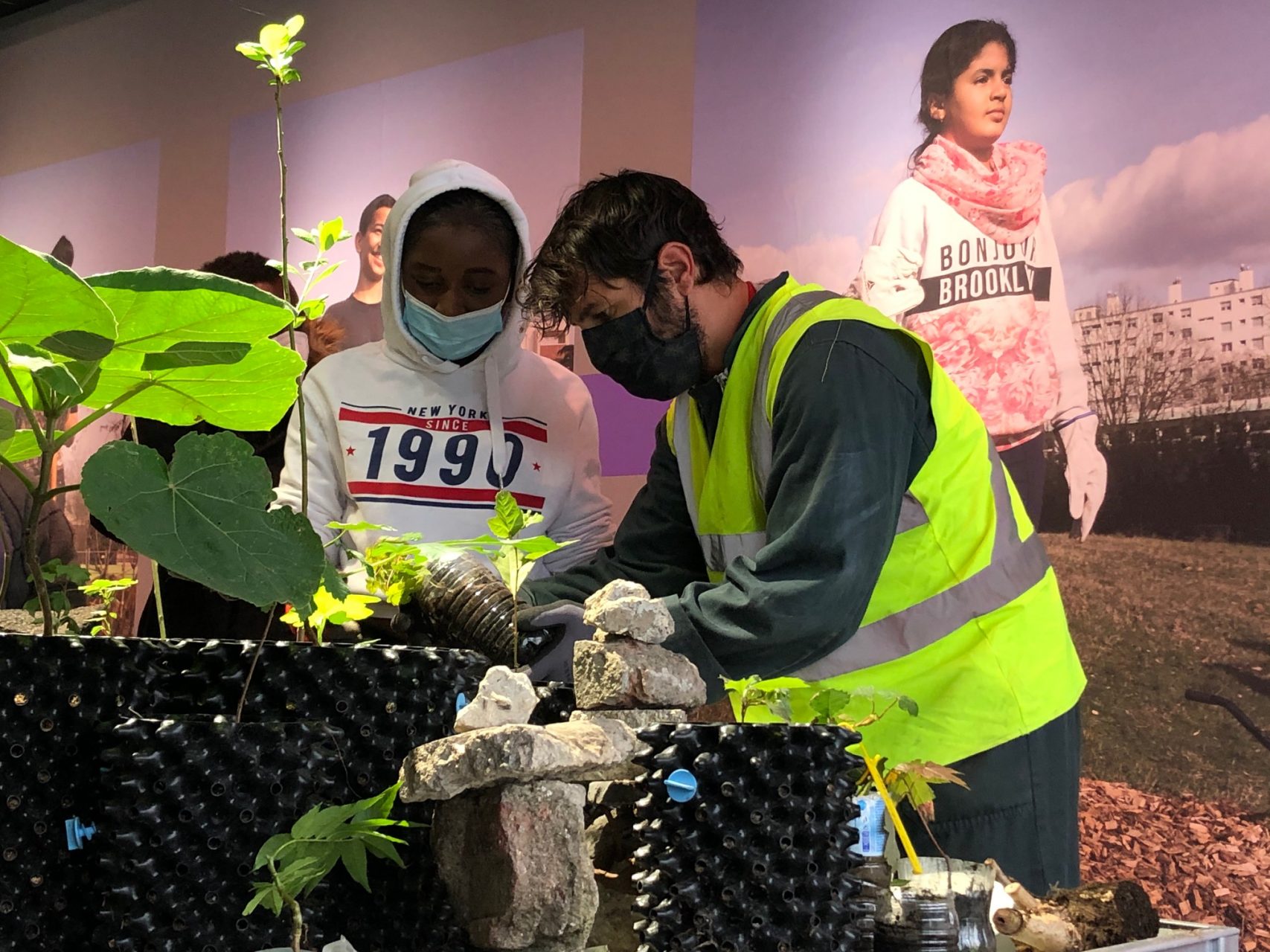
Training Course
Mémoire de l’Avenir gives training courses based on a participative and active method, using different tools and practical exercises from which new theories emerge. These training courses are interdisciplinary, and shed a light upon themes linked to co-existence and social issues, including citizenship, difference, stereotypes and discrimination, identity and memory, and the relations between human beings and the environment.
The training course Interculturality in Dialogue offers a perspective on questions and practices related to artistic and cultural mediation, using artistic practice and cultural heritage as tools of perception, expression, and reflection, with an interdisciplinary perspective that mixes ideas from art history, anthropology, and philosophy. The course deepens the notion of mediation, which allows participants to reflect on notions of relationship, meaning, relations to oneself and the Other, the individual and the collective. What makes us different? What brings us together? What do we have in common?
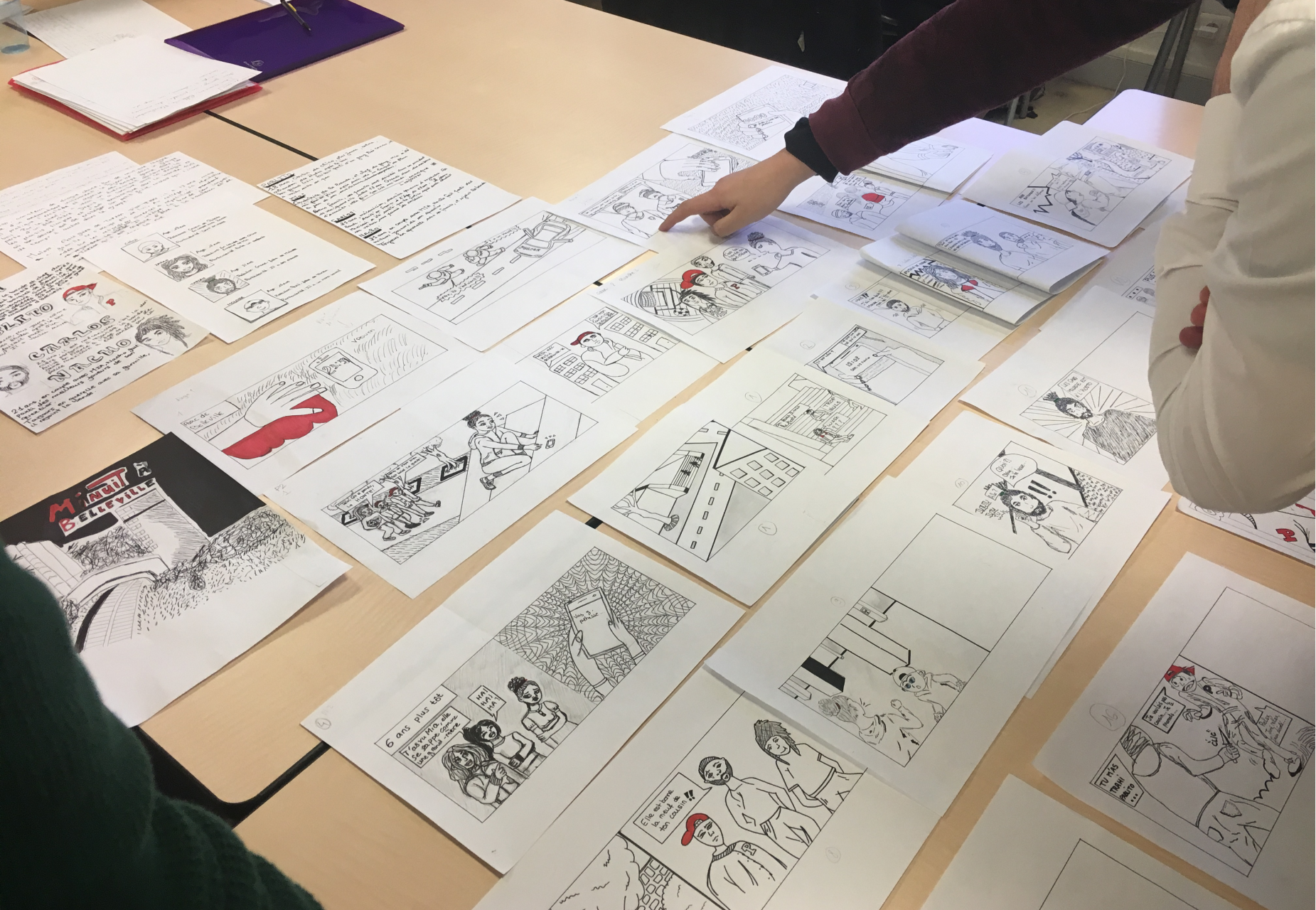
Mémoire de l’Avenir
http://www.memoire-a-venir.org/index_en.html
Mémoire de l’Avenir
http://www.memoire-a-venir.org/index_en.html
